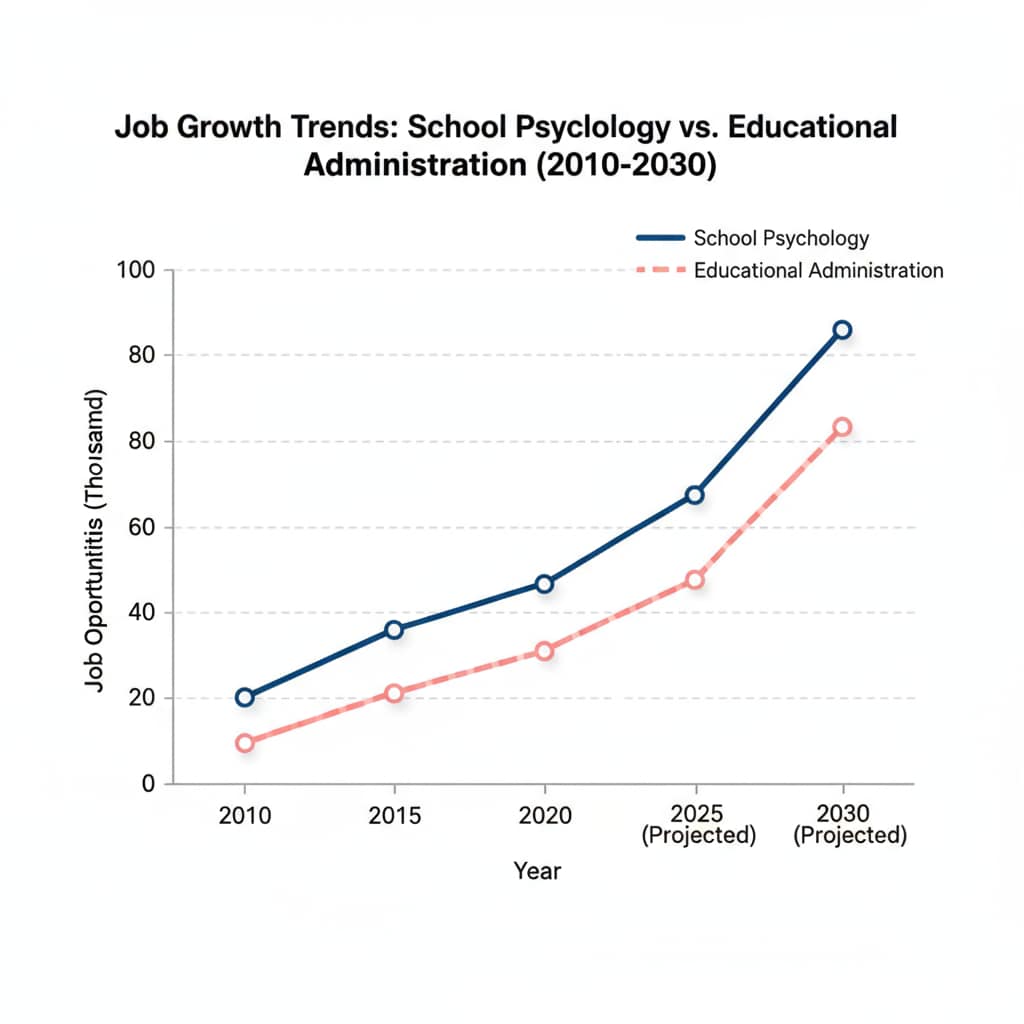Career choices in education often present a crossroads, especially when considering school psychology and educational administration. For individuals with a non-education bachelor’s degree and some teaching assistant experience, these two paths offer distinct opportunities and challenges. Let’s delve into the details of each to make an informed decision.

Entry Requirements: A Starting Point
School psychology typically requires further education. Most positions demand a master’s or doctoral degree in school psychology. This advanced study equips individuals with in-depth knowledge of child and adolescent development, psychological assessment, and intervention techniques. For example, courses in abnormal psychology and educational psychology are crucial components. School psychology on Wikipedia
In contrast, educational administration may have more flexible entry requirements. A master’s degree in educational administration or a related field is often preferred, but some entry-level positions may accept candidates with a bachelor’s degree and relevant experience. Relevant experience could include working as a school secretary or in a district office, which provides exposure to administrative processes.

Career Prospects: Future Outlook
The demand for school psychologists is on the rise. As schools focus more on students’ mental health and well-being, the need for professionals who can address emotional, behavioral, and learning issues is increasing. According to the Bureau of Labor Statistics, the job growth for school psychologists is projected to be above average in the coming years. This means good job security and potential for career advancement. Educational administration on Britannica
Educational administration also offers promising career prospects. With the continuous evolution of educational policies and the need for efficient school management, administrators play a vital role. There are opportunities to move up the ranks, from school-level administrators to district-level positions, with increased responsibilities and higher salaries.
Both school psychology and educational administration offer unique career paths in the education field. By carefully considering the entry requirements, career prospects, work content, and personal development opportunities, individuals with non-education backgrounds can make a well-informed decision. Whether you’re drawn to the psychological aspects of students’ lives or the administrative side of running a school, these paths can lead to fulfilling and rewarding careers.

Readability guidance: Each section clearly presents key information about the two career paths. Lists could be used to further break down details. Transition words like “however”, “in contrast”, and “also” help connect ideas. Short paragraphs make the content easy to read.


